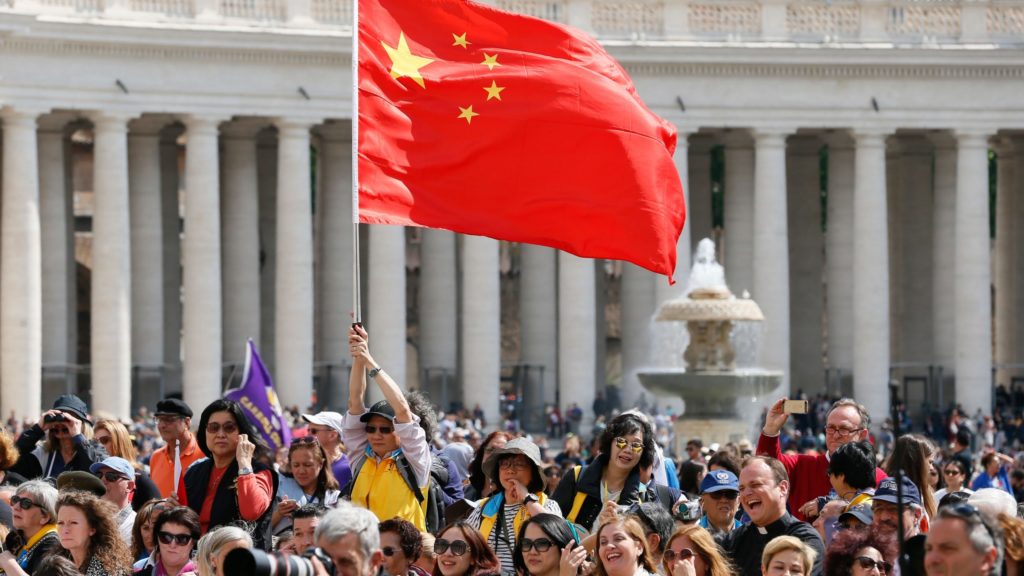Pope Francis has rectified an irregularly appointed bishop in China for the "greater good of the diocese," said Cardinal Pietro Parolin, Vatican secretary of state.
"The Holy Father has appointed Bishop Joseph Shen Bin as bishop of Shanghai, in continental China, transferring him from the Diocese of Haimen," the Vatican announced July 15.
Bishop Shen, 53, had been appointed to the Diocese of Haimen in 2010 "with the consent of the two parties," that is, China and the Holy See, the announcement said.
However, he had been transferred to the Diocese of Shanghai by Chinese authorities in April without Vatican agreement and in disregard for a joint agreement between the Vatican and government of China.
Signed in 2018, the agreement outlines procedures for ensuring Catholic bishops are elected by the Catholic community in China and approved by the pope before their ordinations and installations. The agreement was renewed in 2020 and again in 2022.
When Chinese authorities transferred Bishop Shen in April, they did so without involving the Vatican in any way in that decision, Cardinal Parolin told Vatican Media July 15.
In November, just a month after the latest renewal, the Vatican issued a public statement of "surprise and regret" when Bishop John Peng Weizhao of Yujiang was installed as auxiliary bishop of Jiangxi, a diocese not recognized by the Holy See, without consulting or informing the Vatican, he said.
Both of these transfers "were made without involving the Holy See," reflecting a way of proceeding that "seems to not take into account the spirit of dialogue and collaboration" established by the two sides over the years and upon which the agreement is based, he said.
However, the cardinal said, Pope Francis "decided nevertheless to rectify the canonical irregularity created in Shanghai, in view of the greater good of the diocese and the fruitful exercise of the bishop's pastoral ministry."
The pope's intention, he said, is "fundamentally pastoral" so as to allow Bishop Shen, who is an "esteemed shepherd," to work with "greater serenity in order to promote evangelization and foster ecclesial communion."
"At the same time, we hope that he will be able, in agreement with the authorities, to facilitate a just and wise solution to some other issues that have been pending for some time in the diocese, such as -- for example -- the position of the two auxiliary bishops, Bishop Thaddeus Ma Daqin, who is still impeded, and Bishop Joseph Xing Wenzhi, who has retired," Cardinal Parolin said.
There are a number of other issues that have to be addressed, he said, but among the most urgent are: the creation of a bishops' conference with adequate statutes detailing its nature and pastoral mission to help foster "growth in the responsibility of the bishops in the leadership of the church in China"; and the establishment of regular communication between the bishops in China and the pope, which is "indispensable for effective communion."
"In fact, it must be said that too many suspicions slow down and hinder the work of evangelization," Cardinal Parolin said. "Chinese Catholics, even those referred to as 'underground,' deserve trust because they sincerely want to be loyal citizens and be respected in their conscience and faith."
It is "indispensable," the cardinal said, that "all episcopal appointments in China, including transfers, be made by consensus, as agreed, and to keep alive the spirit of dialogue between the parties."
"It is inevitable for there to be problems, but if this dialogue grows in truth and mutual respect, it can be fruitful for the church and Chinese society," he said.
To facilitate dialogue so that it be "more fluid and fruitful, it seems to me that the opening of a stable liaison office of the Holy See in China would be supremely useful," he said. This would foster dialogue with civil authorities and "contribute to full reconciliation within the Chinese church and to its journey toward desired normality.”
"Together we must prevent disharmonious situations that create disagreements and misunderstandings," including among Catholics, he said. Applying the agreement well "is one way to do that, together with sincere dialogue."

